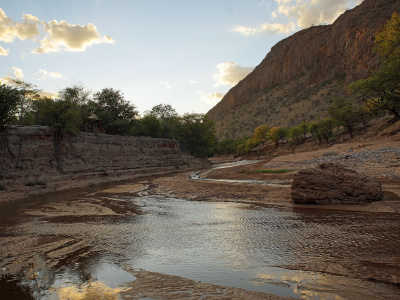
African river basin organisations: From best practice to best fit
Transboundary river basin organisations are key to negotiating the conflicting interests and competing claims of states around a shared water resource, but their current influence is limited. Alfonso Medinilla argues that adopting a more problem-driven approach could help to focus on areas where change is feasible and collective action can be built.
Summary
Transboundary river basin organisations (RBOs) are a specific subset of regional organisations in Africa. RBO membership follows a purely geographic logic with mandates centre around managing a single shared resource. On paper, African RBOs adhere to a consensual and cooperative approach to water resource management between states; in practice, water management is a constant negotiation to deal with conflicting interests and competing claims between upstream and downstream countries.
The influence of external support is unmistakable in African transboundary basin management, yet often fails to engage with the political complexity of transboundary water management. Donor support has long promoted a principled, best-practice approach to water governance through regional institutions. Today, many African RBOs are only partially able to implement their agenda, and with few notable exceptions, member states are reluctant to empower river basin organisations beyond what is necessary to secure their direct interests.
The external environment for African RBOs is changing rapidly, climate finance incentivises the development of comprehensive and environmentally sound strategies, while a renewed appetite for hydropower infrastructure investment is changing the stakes of hydropolitics in many African basins.
In the light of these challenges, African River Basin Organisations, their member states and partners may benefit from a change in perspective from best-practice to best-fit. A problem-driven approach to transboundary water management would allow RBOs and their partners to focus on areas where change is feasible and on specific (sub-)regional problems that can be used to build collective action.




